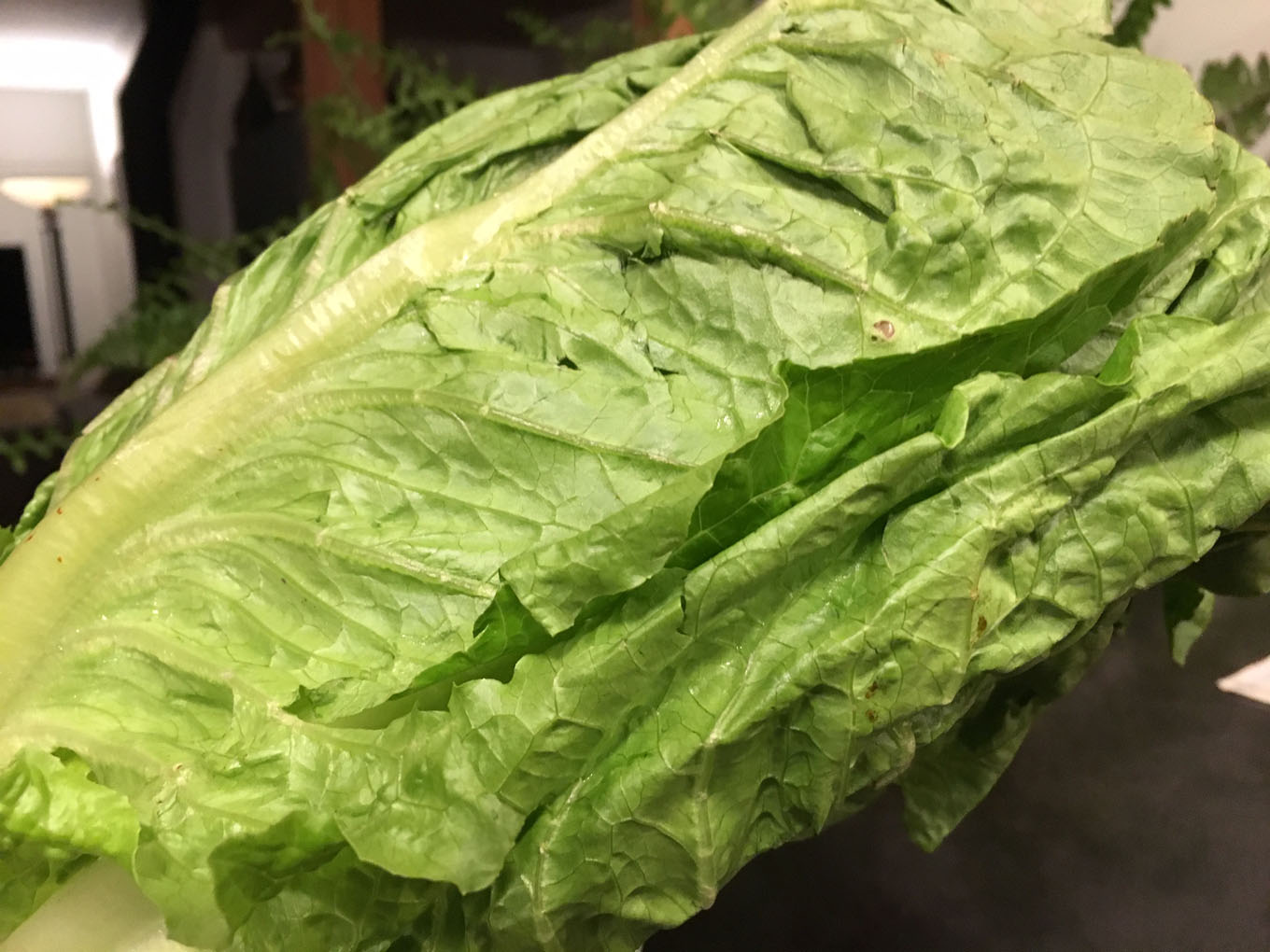Health Canada says outbreak of E. coli infections linked to romaine lettuce
Pass the Caesar Salad? Only if it’s made with Green Lettuce.
That’s what facing consumers and restaurateurs alike after E.coli was confirmed in romaine lettuce Canada and the United States earlier this week.
“The likely source of the outbreak has been identified as romaine lettuce,” said Dr. Jennifer Russell, chief medical officer of health in a media release. “New Brunswickers should avoid eating romaine lettuce and salad mixes containing romaine lettuce until more is known about the outbreak and the cause of contamination.”
Health Canada confirms that the outbreak has been reported in New Brunswick with now 19 confirmed cases in Canada.
“The Public Health Agency of Canada is collaborating with provincial public health partners, the Canadian Food Inspection Agency, Health Canada, as well as the United States Centers for Disease Control and Prevention (U.S. CDC) and the United States Food and Drug Administration (U.S. FDA), to investigate an outbreak of E. coli infections in Ontario and Quebec, and several U.S. states,” the Health Canada Public Notice said.
“The current outbreak appears to be ongoing as illnesses linked to romaine lettuce continue to be reported. These recent illnesses indicate that contaminated romaine lettuce may still be on the market, including in restaurants, grocery stores and any establishments that serve food. At this time, the investigation evidence in Ontario, Quebec, and New Brunswick suggests that there is a risk of E. coli infections associated with eating romaine lettuce.
Due to the ongoing risks is the Public Health Agency of Canada is advising individuals in Ontario, Quebec, and New Brunswick to avoid eating romaine lettuce and salad mixes containing romaine lettuce until more is known about the outbreak and the cause of contamination.
Currently, there is no evidence to suggest that residents in other parts of Canada are affected by this outbreak, but most grocery outlets are removing the product from their shelves. The U.S. CDC has also issued communications with similar advice for U.S individuals. The outbreak investigation is ongoing, and this public health notice will be updated as the Canadian investigation evolves.
The following tips will help reduce the risk of an E. coli infection, but they will not fully eliminate the risk of illness:
- Wash your hands thoroughly with warm water and soap for at least 20 seconds, before and after handling lettuce.
Unwashed lettuce, including whole heads of lettuce sold in sealed bags, should be handled and washed using these steps:
- Discard outer leaves of fresh lettuce.
- Wash unpackaged lettuce under fresh, cool running water. There is no need to use anything other than water to wash lettuce. Washing it gently with water is as effective as using produce cleansers.
- Keep rinsing your lettuce until all of the dirt has been washed away.
- Do not soak lettuce in a sink full of water. It can become contaminated by bacteria in the sink.
- Store lettuce in the refrigerator for up to seven days. Discard when leaves become wilted or brown.
- Use warm water and soap to thoroughly wash all utensils, countertops, cutting boards and storage containers before and after handling lettuce to avoid cross-contamination.
Ready-to-eat lettuce products sold in sealed packages and labelled as washed, pre-washed or triple washed do not need to be washed again. These products should also be refrigerated and used before the expiration date.


























